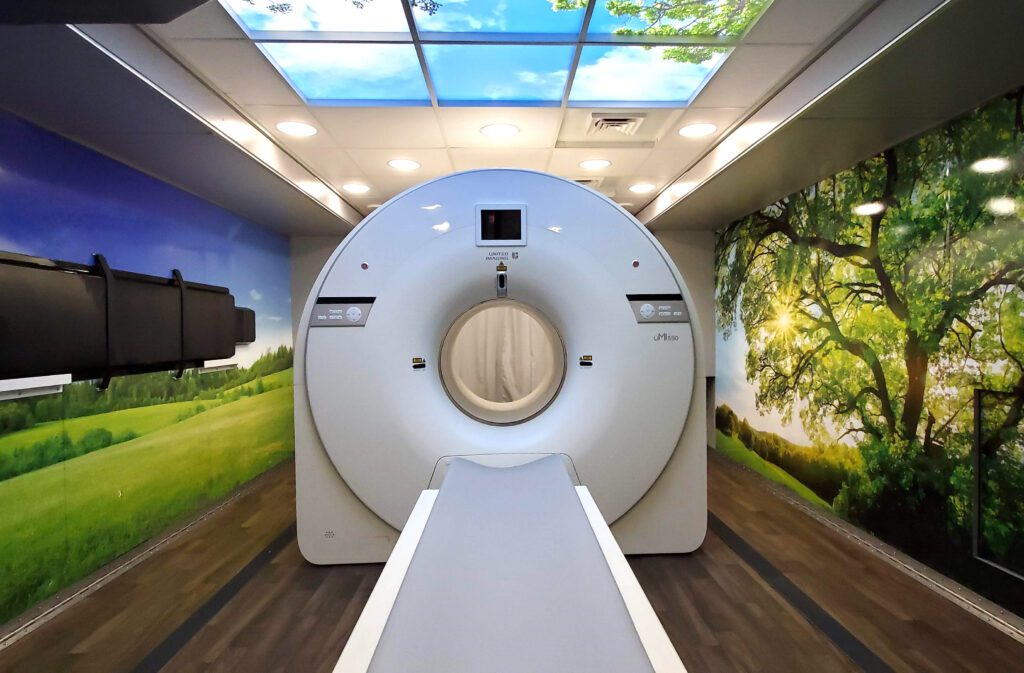What’s New in PET/CT
18F-FDG PET/CT for Systemic Staging of Newly Diagnosed Breast Cancer in Men.
PET/CT Updates, Research & Education
October 2018
Purpose
18F-FDG PET/CT has demonstrated substantial value in systemic staging of newly diagnosed breast cancer in women. However, it is not known whether breast cancer in male patients benefit similarly. This study assesses 18F-FDG PET/CT systemic staging in patients with newly diagnosed male breast cancer and determines detection rates for unsuspected distant metastases stratified by pre-PET/CT stage.
Methods
In this Institutional Review Board-approved retrospective study, our Healthcare Information System was screened for stage I-III male patients with breast cancer who underwent 18F-FDG PET/CT prior to systemic or radiation therapy from 2004 to 2017. Initial stage was determined by mammography, ultrasound, and/or surgery. 18F-FDG PET/CT was evaluated to identify unsuspected extra-axillary regional nodal and distant metastases, and a Post PET/CT stage was determined. Rates of upstaging to stage IV were determined for each initial stage.
Results
During the 14-year period, 10,124 unique patients underwent 18F-FDG PET/CT for breast cancer at our institution. Of these, 106 patients were male, and 39 of these patients were imaged at initial staging and met the inclusion criteria. Median age was 62 years (range: 31-90), most had ductal carcinoma (95%), and most were ER+ (97%). In 7 of 39 patients (18%), 18F-FDG PET/CT identified previously unsuspected distant metastases, which increased patient stage to IV. This included 3 of 19 (16%) initial stage IIB patients and 4 of 12 (33%) initial stage III patients. 18F-FDG PET/CT also detected an unsuspected synchronous lymphoma in one patient.
Conclusion
18F-FDG PET/CT revealed previously unsuspected distant metastases in 16% of male patients with pre-PET/CT stage IIB breast cancer and 33% of those with stage III breast cancer. These rates are comparable to previously published upstaging rates in female patients. 18F-FDG PET/CT demonstrates value for systemic staging of male patients with breast cancer, and should be considered for use in newly diagnosed patients, particularly those with stage IIB and III disease.
Source: J Nucl Med. 2018 Sep 20. pii: jnumed.118.217836. doi: 10.2967/jnumed.118.217836.
<https://www.ncbi.nlm.nih.gov/pubmed/30237211> Retrieved 5 October 2018.

October Breast Cancer Awareness
- About 2,550 new cases of invasive
breast cancer are expected to be
diagnosed in men in 2018. A man’s
lifetime risk of breast cancer is about
1 in 1,000 - About 1 in 8 U.S. women (about
12.4%) will develop invasive breast
cancer over the course of her lifetime - In 2018, an estimated 266,120
new cases of invasive breast cancer
are expected to be diagnosed in
women in the U.S., along with 63,960
new cases of non-invasive (in situ)
breast cancer
Connect with Us
Get additional information and stay up-to-date with the latest news by connecting with us on social media.



